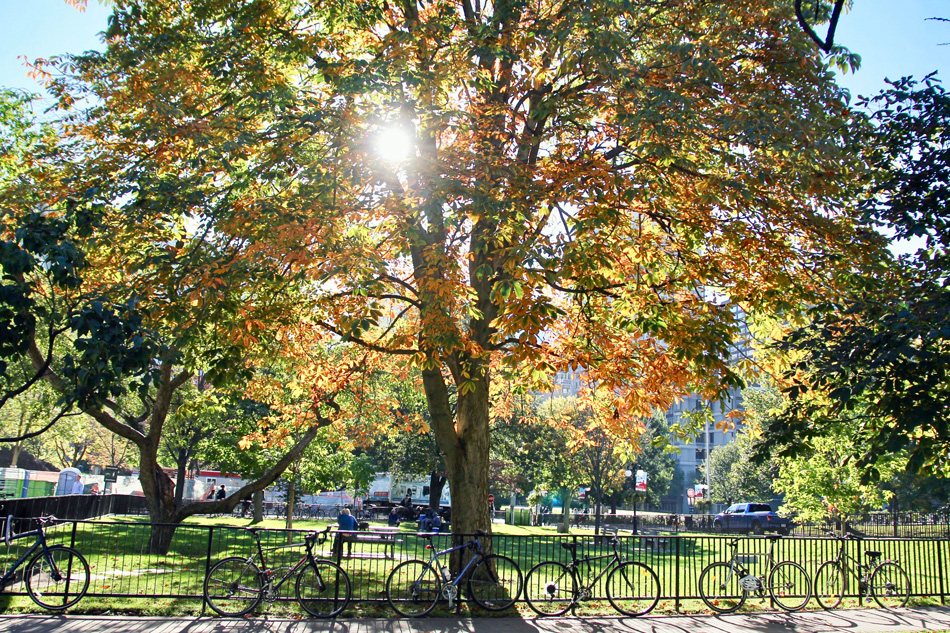
The previous academic year (2022-2023) was marked by a flurry of campus sustainability activity, as evidenced by the achievements highlighted in the Climate & Sustainability Annual Report 2022-2023.
The Annual Report, published in late 2023, covers the period of September 2022 to August 2023. It highlights the work of McGillians across the eight categories covered by the Climate & Sustainability Strategy 2020-2025: Research & Education, Buildings & Utilities, Waste Management, Travel & Commuting, Food Systems, Procurement, Landscapes & Ecosystems, and Community Building, in addition to sharing achievements from the flagship Sustainability Projects Fund. Readers will also find an update on key performance indicators, as well as a look forward to initiatives slated for 2023-2024.
“The Climate & Sustainability Annual Report showcases the range and quality of activities undertaken by the McGill community to transform our University into a model of sustainability for society,” says Francois Miller, Executive Director of Sustainability. “We are grateful for the perseverance and determination of all those involved.”
Throughout the report, a theme is clear: thanks to collaboration with students, faculty and staff, McGill has strengthened its commitment to sustainability though education, funding, and action.
Continued commitment to Sustainability Projects Fund
A significant milestone was achieved with the successful renewal of the Sustainability Projects Fund (SPF). The largest fund of its kind in Canada, the SPF is funded by student fees and University contributions to build a culture of sustainability on campus. Students voted to overwhelmingly support the renewal of funding until May 2028, and the University reconfirmed its commitment to equally match student fee contributions. Thanks to student support and the University’s commitment, the SPF will continue to catalyze impactful environmental projects across McGill’s campuses.
Expansion of climate education
Making access to sustainability education available to all students at McGill was also a key achievement in 2022-2023. In Fall 2022, the FSCI198: Climate Crisis & Climate Actions course was made available to all undergraduate students. This course focuses on introducing students to a wide range of knowledge and experiences of the climate crisis. The overarching goal of the course is to provide students with opportunities to learn the skills necessary for individual and collective actions to address climate change. This was complemented by the launch of the new online sustainability module, Creating a Brighter Future: Sustainability at McGill, which is available to all students on MyCourses. This module introduces sustainability concepts and shares how students can get involved during their time at McGill.
Taking action for biological diversity
McGill signed the Nature Positive Pledge in late fall of 2022, committing the University to assess the its biodiversity baseline, adopt smart targets for biodiversity, set actions to achieve them, and report annually on progress. As a first step, the University completed its first Biodiversity Plan that identifies a collective vision and corresponding objectives in support of biodiversity on McGill’s campuses. The Plan was endorsed by the University’s governing bodies in Summer 2023 and was launched at the Biodiversity Festival in October 2023. People from 15 different units, groups, and faculties were consulted during the plan’s development.
Looking ahead: New Climate & Sustainability Strategy (2025-2030)
McGill is developing a new Climate & Sustainability Strategy (2025-2030) over the next year and a half. This strategy will reflect the needs of the McGill community by outlining key objectives and actions and reinforcing the University’s commitment to leadership in sustainability. Stay tuned for opportunities to participate in the consultation process in 2024.
